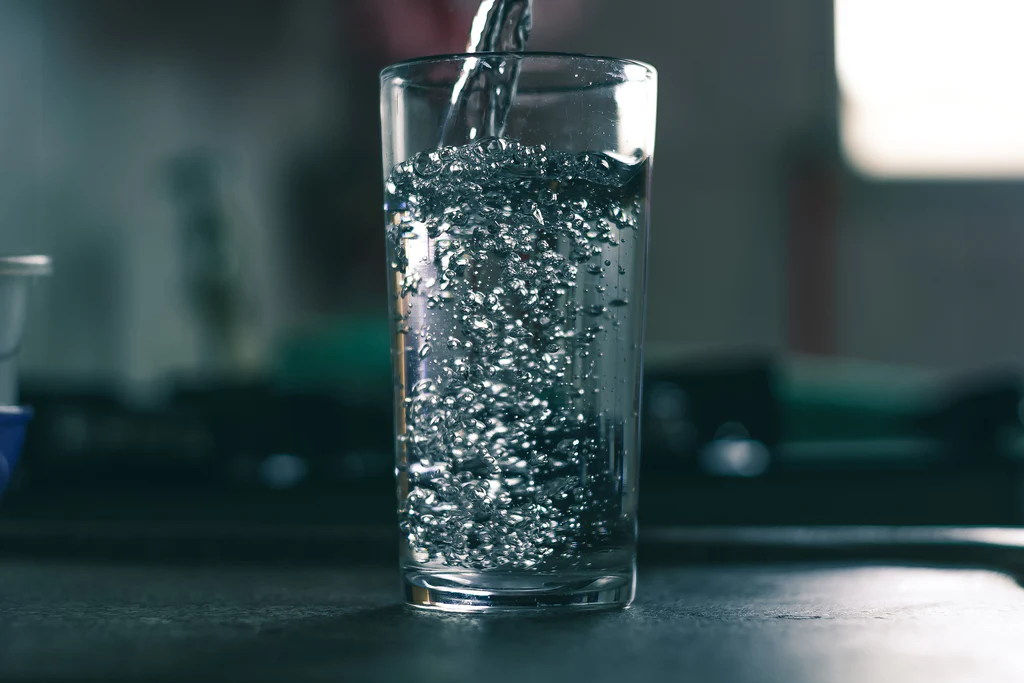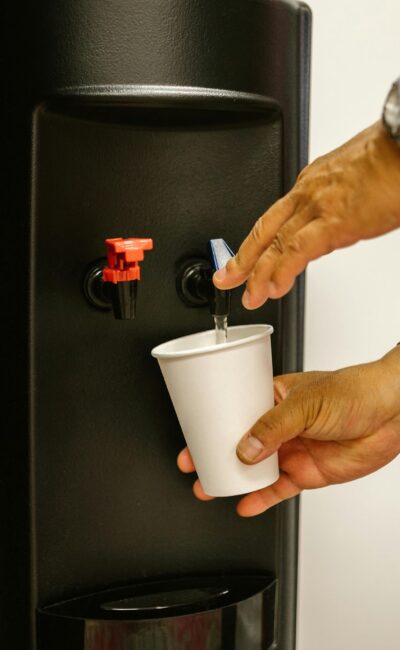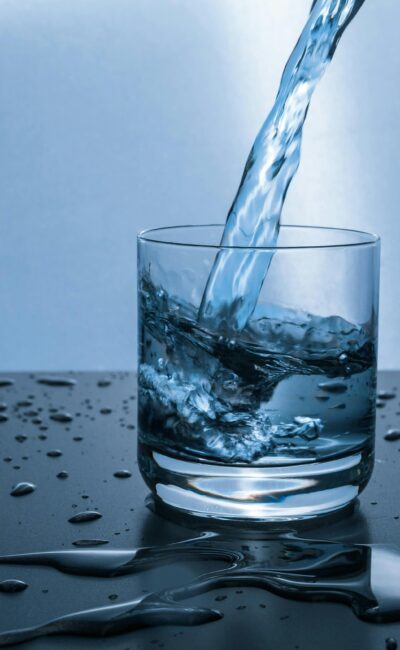Having access to clean drinking water is essential. There are federal regulations that limit the amount and types of contaminants that tap water can contain. However, many cities struggle with continuously providing their communities with clean water. Their water treatment methods may not achieve the standard necessary. Or, there are often larger issues, such as polluted water sources and faulty or outdated pipe systems. The solution is installing a water filter on your kitchen faucet.
The best faucet filter is one that’s effective, easy to use, and cost-conscious. With several types of water filters on the market to choose from, it’s nice to know that the FloWater Faucet Filter covers all three of these benefits. First, the FloWater Faucet Filter uses filtration that removes or reduces 80-plus known contaminants found in tap water today. This is achieved through a five-stage micro carbon block filter process.
Second, the faucet filter is easy to use and install. It’s designed to fit most standard faucets and comes with two adapters should you need them. Once installed, you can also easily transition between drinking FloWater and using tap water for washing dishes or cleaning the kitchen. In addition, the flow rate is twice that of the typical sink faucet filter to fill drink containers more quickly. Compared to an alternative solution such as a water filter pitcher which requires frequent filter replacement, the FloWater Faucet Filter has a longer filter life. The convenience of keeping families hydrated is made easier with one simple faucet addition.
Third, the FloWater Faucet Filter is the best water purifier for faucet installation because it’s cost-conscious. This is especially helpful for those who are working on personal money management. For many, drinking filtered water has meant buying caseloads of bottled water or plastic water jugs every month. This makes it hard to budget since water supply needs vary from month-to-month. The FloWater Faucet Filter saves an average family of four approximately $700 per year compared to the cost of drinking bottled water at home. Plus, it eliminates the toxicity of plastic waste. If you’re interested in how to reduce pollution, we cover that topic in detail.
Knowing what to look for when choosing the best faucet filter helps to narrow down your choices. You don’t have to spend money on bottled water or settle for drinking unfiltered water from the tap. Installing a water faucet filter improves the quality of your water supply and allows you and your family to stay hydrated.
Identifying Contaminants Removed Through Filtration
There is a range of pollutants found in tap water, some more prevalent than others. The original water source, city water system, and your home plumbing all play a part in how contaminated your drinking water is. Most filters pass water through a single filter in an effort to provide cleaner water. FloWater uses a multi-stage water filtration system to remove and reduce up to 99 percent of all impurities found in typical tap water.
Dirt, Dust, and Solid Impurities
FloWater’s sediment filter removes dirt, dust, and any other solid impurities. These can originate from the source or leach into the water from the pipes. This tap water filter system captures these larger pollutants and keeps them from ending up in your water. You can tell if your city water hasn’t been properly treated if there’s a cloudiness to its appearance or sediment settles at the bottom. If you notice that your water smells bad, this is another sign that you may have contaminated water.
Heavy Metals, Chlorine, and Hydrogen Sulfide
The activated carbon filter removes smaller particles that often get through standard faucet water filters. These water contaminants include chlorine, heavy metals, and hydrogen sulfide. Elements like these often leave behind an unpleasant odor or chlorine taste, making it undesirable to drink. The activated carbon filter helps to provide a crisp, clean taste.
Lead, Bacteria, and Viruses
The microscopic pollutants that make their way into tap water are removed through an advanced osmosis filter. A semipermeable membrane removes lead, bacteria, viruses, and other frequently found pollutants. This level of water filtration is five times more effective than other water filters on the market to deliver the most purified water possible.
The best faucet filter doesn’t only get rid of the bad, it adds back the good. In the case of reverse osmosis, for example, there are healthy elements in tap water that are stripped away due to the effectiveness of the water filtration system in place. Part of the multi-step process includes adding back essential minerals and electrolytes to create a better-tasting, healthier hydration experience.
An alkaline filter adds a proprietary blend of ten trace minerals that raises the pH level of tap water. This helps neutralize the acidity and alleviate stress on your internal organs. Then, the electrolyte enhancement adds potassium, sodium, calcium, and magnesium to the water. These help keep you hydrated and energized. They also support immune function, cell repair, and bone strength.
When choosing the best water purifier for faucet use, rely on one that provides the most benefits. Removing contaminants is the primary goal, but consider what other advantages it has to offer.
Importance of Drinking Clean Water
Proper hydration is a key part of maintaining good health. Without access to clean drinking water, getting the recommended daily amount of water is challenging. It affects families at home and communities at large that need clean water in their everyday life. Chemicals, bacteria, viruses, and other pollutants and contaminants seep into water sources. Drinking contaminated water can lead to both long-term and short-term health effects.
Exposure to high doses of chemicals found in tap water can lead to damage to the nervous and reproductive systems. Additionally, when exposed in smaller doses over time, chemical contamination from unfiltered water can lead to various forms of cancer. The most common health effects linked to water contamination due to bacteria and viruses, include vomiting, headache, and diarrhea. It can also lead to kidney failure, hepatitis, and weakened immune systems.
One of the most prevalent tap water contaminants is lead. Potential health effects of lead in drinking water can include behavior and learning problems in children. It can slow their growth and cause them to have hearing loss. Pregnant women are also highly susceptible to lead poisoning, which can result in premature birth or reduced fetal growth. If you are pregnant and wondering about drinking tap water while pregnant, we cover this in great detail.
Lead is found in many sources of the environment, some of which are unavoidable to come into contact with. However, the U.S. Environmental Protection Agency estimates contaminated drinking water can make up to 20 percent or more of a person’s total lead exposure. The percentage is increased for infants who drink formula mixed with tap water. This exposure ranges from 40 to 60 percent.
The importance of drinking clean, pure water is that small doses of contaminants can accumulate in the body over time. The longer a person consumes tap water that contains lead or other pollutants, the greater risk they have of suffering from long-term side effects.
Value of Faucet Water Filters Compared to Bottled Water
Bottled water has been the go-to filtered water resource for the past few decades. However, it’s slowly being phased out as people are deciding there’s a more sustainable solution by using filtered water stations and faucets. There’s a greater value compared to buying bottled water from a cost, convenience, and environmental perspective.
Pay for Water Not for Packaging
The average price for a bottle of water is $1.29. Comparably, water itself costs less than $0.00001. Plus, it takes three times the amount of water to produce the equivalent of one plastic bottle’s worth. Furthermore, most major filtered water brands use the same city water sources that supply tap water. The marked-up cost comes from marketing and packaging, and perceived convenience.
Adapt to Change Regarding Convenience
When bottled water was first introduced, grabbing a bottle of filtered water when on-the-go was a convenient, healthier option versus choosing a soda or other sugary or caffeinated drink. However, filtered water stations are competing with this grab-and-go convenience. Currently, with more people staying at home more often, having filtered water available right at the sink faucet is the most cost-effective convenience.
Additionally, an increasing number of cities, airports, and businesses are banning the sale of single-use plastic water bottles. They are replacing them with other solutions, such as public filtered water stations. This makes it easier for people to fill up with their own reusable water bottles without worrying about the cost and plastic waste of buying bottled water.
Choose an Environmentally-Friendly Way to Stay Hydrated
Lastly, the strain plastic waste puts on the environment has led many to switch to using water faucet filters at home. The daily recommended amount of water per day is 64 ounces or roughly four single-use plastic water bottles. In a week, a person can average using at least 30 bottles, if not more. When multiplying that number by the millions of people in the U.S., it leads to an alarming amount of plastic waste.
Most plastic waste isn’t recycled, which means it ends up in landfills. Due to the resistant nature of its chemical makeup, it takes hundreds of years for it to decompose on its own. This has resulted in overrun landfills that spill into the ocean. Using an at-home water faucet filter eliminates the need for plastic water bottles immediately. When choosing the best faucet filter for your household, you’re already making a difference in reducing your carbon footprint and giving back to the environment.
Maintaining access to clean drinking water is a necessity. Fortunately, you have the option of using a kitchen sink faucet water filter that’s effective, easy to use, and cost- and eco-conscious. Staying hydrated has never been simpler.
Sources:
https://www.epa.gov/report-environment/drinking-water
https://www.epa.gov/ground-water-and-drinking-water/basic-information-about-lead-drinking-water




